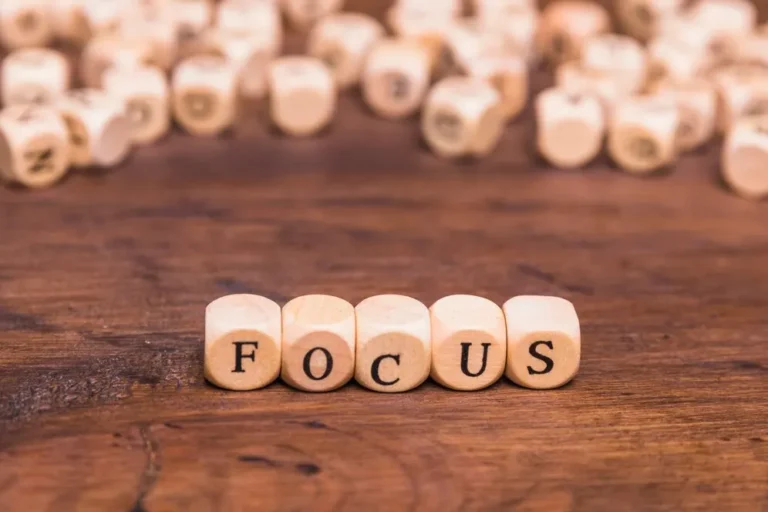A well-planned daily routine is the foundation of a productive, balanced, and fulfilling life. It helps you manage your time effectively, maintain good health, and achieve your goals without unnecessary stress.
This article explores the importance of a daily routine, key elements to include, and how to create a routine that enhances your personal and professional life.
What is a daily routine?
A daily routine is a structured sequence of activities that you follow throughout the day to ensure productivity, health, and overall well-being.
 The Core Idea: Instead of living reactively, a well-structured routine gives you control over your time and energy.
The Core Idea: Instead of living reactively, a well-structured routine gives you control over your time and energy.
 Why It Matters: Research shows that having a consistent routine improves mental clarity, physical health, and emotional stability.
Why It Matters: Research shows that having a consistent routine improves mental clarity, physical health, and emotional stability.
Why is a daily routine important?
 Boosts Productivity—Helps you accomplish more in less time by reducing distractions and inefficiencies.
Boosts Productivity—Helps you accomplish more in less time by reducing distractions and inefficiencies.
 Enhances Mental & Physical Health—A structured schedule includes time for exercise, meals, and self-care.
Enhances Mental & Physical Health—A structured schedule includes time for exercise, meals, and self-care.
 Reduces Stress & Anxiety—Knowing what to expect minimizes uncertainty and decision fatigue.
Reduces Stress & Anxiety—Knowing what to expect minimizes uncertainty and decision fatigue.
 Creates Better Work-Life Balance—Ensures time for personal and professional commitments.
Creates Better Work-Life Balance—Ensures time for personal and professional commitments.
 Supports Long-Term Success—Consistent daily habits lead to greater achievements over time.
Supports Long-Term Success—Consistent daily habits lead to greater achievements over time.
A Well-Balanced Daily Routine: 8 Key Elements
A productive daily routine should include habits that nurture your mind, body, and personal growth.
1. A Structured Morning Routine
Your morning sets the tone for the rest of the day. A well-planned start ensures a positive and energetic mindset.
 Ideal Morning Activities:
Ideal Morning Activities:
 Wake up at the same time daily.
Wake up at the same time daily.
 Hydrate with water or herbal tea.
Hydrate with water or herbal tea.
 Stretch, meditate, or exercise
Stretch, meditate, or exercise
 Have a healthy breakfast.
Have a healthy breakfast.
 Plan your priorities for the day.
Plan your priorities for the day.
2. Work & Productivity Hours
To maximize focus and efficiency, structure your work hours with dedicated time blocks.
 Work Efficiency Tips:
Work Efficiency Tips:
 Prioritize important tasks in the morning.
Prioritize important tasks in the morning.
 Use the Pomodoro technique (25 min work, 5 min break).
Use the Pomodoro technique (25 min work, 5 min break).
 Limit distractions (phone, social media)
Limit distractions (phone, social media)
 Set clear daily goals
Set clear daily goals
3. Healthy Meal Breaks
Nutritious meals provide energy and support brain function. Avoid skipping meals or eating junk food.
 Balanced Diet Essentials:
Balanced Diet Essentials:
 Eat whole foods rich in protein, fiber, and healthy fats.
Eat whole foods rich in protein, fiber, and healthy fats.
 Stay hydrated throughout the day.
Stay hydrated throughout the day.
 Have mindful eating habits (no screen time while eating).
Have mindful eating habits (no screen time while eating).
4. Exercise & Physical Activity
Regular movement keeps you physically fit, boosts mood, and enhances productivity.
 Ways to Stay Active:
Ways to Stay Active:
 Take short walking breaks between work.
Take short walking breaks between work.
 Do a workout session (gym, yoga, or sports)
Do a workout session (gym, yoga, or sports)
 Stretch every few hours if you sit for long periods.
Stretch every few hours if you sit for long periods.
5. Self-Development & Learning
Dedicating time to personal growth helps you stay competitive and mentally sharp.
 Daily Learning Activities:
Daily Learning Activities:
 Read a book or listen to a podcast.
Read a book or listen to a podcast.
 Learn a new skill (language, business, creative hobbies)
Learn a new skill (language, business, creative hobbies)
 Stay updated with news in your field.
Stay updated with news in your field.
6. Time for Social Connections
Maintaining relationships is essential for emotional well-being.
 Ways to Strengthen Relationships:
Ways to Strengthen Relationships:
 Spend quality time with family or friends.
Spend quality time with family or friends.
 Call or message loved ones regularly.
Call or message loved ones regularly.
 Engage in social activities or networking.
Engage in social activities or networking.
7. Evening Wind-Down Routine
A structured night routine improves sleep quality and prepares your mind for the next day.
 Healthy Night Habits:
Healthy Night Habits:
 Avoid screen time. 30 minutes before bed
Avoid screen time. 30 minutes before bed
 Reflect on your day and set goals for tomorrow.
Reflect on your day and set goals for tomorrow.
 Engage in relaxing activities like reading or journaling.
Engage in relaxing activities like reading or journaling.
8. Consistent Sleep Schedule
A well-rested body and mind are essential for optimal performance.
 Better Sleep Tips:
Better Sleep Tips:
 Sleep and wake up at the same time daily.
Sleep and wake up at the same time daily.
 Create a relaxing bedtime environment.
Create a relaxing bedtime environment.
 Avoid caffeine and heavy meals late at night.
Avoid caffeine and heavy meals late at night.
How to Build Your Own Daily Routine
Follow these steps to design a structured daily routine that aligns with your goals and lifestyle:
 Step 1: Identify Your Priorities – Determine what matters most (work, health, relationships, personal growth).
Step 1: Identify Your Priorities – Determine what matters most (work, health, relationships, personal growth).
 Step 2: Set Fixed Time Blocks—Allocate specific time slots for work, meals, exercise, and rest.
Step 2: Set Fixed Time Blocks—Allocate specific time slots for work, meals, exercise, and rest.
 Step 3: Start Small & Adjust Gradually—Implement one or two new habits at a time.
Step 3: Start Small & Adjust Gradually—Implement one or two new habits at a time.
 Step 4: Stay Flexible but Consistent—Adapt your routine when needed, but maintain discipline.
Step 4: Stay Flexible but Consistent—Adapt your routine when needed, but maintain discipline.
 Step 5: Track Your Progress— Use a journal or planner to monitor consistency.
Step 5: Track Your Progress— Use a journal or planner to monitor consistency.
The Positive Impact of a Structured Daily Routine
A well-organized daily routine leads to
 More Productivity—You’ll complete tasks efficiently with less stress.
More Productivity—You’ll complete tasks efficiently with less stress.
 Improved Health—Regular meals, exercise, and rest enhance well-being.
Improved Health—Regular meals, exercise, and rest enhance well-being.
 Stronger Mental Clarity—A structured schedule reduces overwhelm.
Stronger Mental Clarity—A structured schedule reduces overwhelm.
 Better Time Management—You’ll balance work, personal life, and self-care effectively.
Better Time Management—You’ll balance work, personal life, and self-care effectively.
 Long-Term Success—Small daily habits create lasting achievements.
Long-Term Success—Small daily habits create lasting achievements.
Many successful individuals, including business leaders, athletes, and creatives, follow strict daily routines to maintain peak performance.
Read This Also: Healthy Morning Routine: Start Your Day with Energy & Positivity
Conclusion: Create Your Daily Routine for a Better Life!
Your daily routine shapes your future. By building structured habits, you can create a balanced, stress-free, and fulfilling life. Start by making small changes and refining your schedule over time.
A well-planned day leads to a successful life—so why not begin today? 


























































 Introduction Every day is a new opportunity to grow, learn, and become a more complete version of…
Introduction Every day is a new opportunity to grow, learn, and become a more complete version of… Introduction How to concentrate in life—this was the question that plagued me for years. If I were…
Introduction How to concentrate in life—this was the question that plagued me for years. If I were…